
Executive Producer
Jeanette Lee was like nothing else billiards had ever seen - and when she took the game by storm, she became, improbably, one of the most recognizable figures in all of sports.

Executive Producer
The maverick machinations of Oakland/Los Angeles Raiders owner Al Davis and his many quarrels with the National Football League.

Executive Producer
Over the course of more than a decade, 4-time WNBA champion and Olympic Gold medalist Maya Moore and her family have been fighting for the release of a wrongfully convicted man named Jonathan Irons. This short film intimately follows Moore as she embarks on a road trip from Atlanta, GA to Jefferson City, MO to bring home the man who, after 23 years behind bars, has not only become a part of her family, but has also strengthened her faith and inspired her pursuit of criminal justice reform.
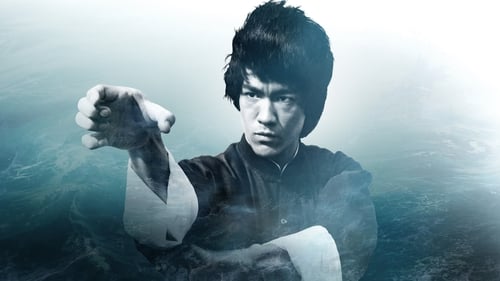
Executive Producer
전설적인 배우이자 무술가 이소룡의 연대기를 다룬 적나라한 다큐멘터리. 할리우드에서 거부당한 후 이소룡은 부모님의 고국인 홍콩으로 돌아갔고, 32세의 나이로 사망할 때까지 짧은 커리어 중에 4편의 아이콘과도 같은 영화를 완성한다. "비 워터"는 중국인 오페라 스타의 아들인 이소룡의 샌프란시스코에서의 삶과 문제아로 살던 홍콩에서의 삶을 들여다본다. 18세 나이에 이소룡은 시애틀에서 쿵후를 가르치며 살았고 미래의 아내인 린다를 만났다. 할리우드가 아시아계 주연 배우를 받아들일 준비가 안 됐을 때, 이소룡은 홍콩으로 돌아가 국제적인 슈퍼스타가 됐다. 인터뷰와 기록 영상이 이소룡의 카리스마, 열정, 철학, 무술에 대한 헌신을 속속들이 보여준다.

Executive Producer
프로 테니스 경기에 비디오 판독 시스템 호크아이가 도입되고 사용되는 과정을 살펴본다. 이를 통해 기술이 인간의 시야보다 경기 장면을 더 잘 보여줄 수 있는지, 올바른 판정에 얼마큼 기여하는지를 알아보며, 나아가 인간 지식의 불완전성에 대한 질문을 던진다.

Executive Producer
A film covering the life and career of pro wrestler Ric Flair.
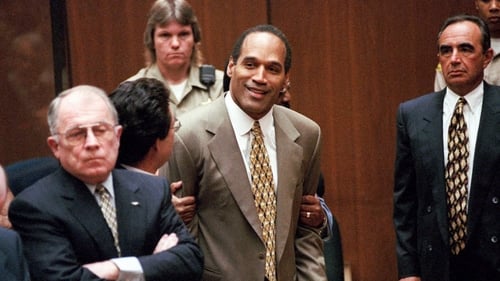
Executive Producer
O.J. 심슨 사건이 인종, 셀러브러티, 미디어, 폭력, 형사 행정 체계 등 현대 미국 사회의 핵심을 드러내는 문화적 이슈라는 점은 이론의 여지가 없다. 20년이 지난 지금도 여전한 이슈를 품은 사건의 면모를 성찰한다. 2017년 아카데미 다큐멘터리 부문 수상작.

Executive Producer
John Daly didn't fit into the world of golf when he burst onto the scene in 1991, gripping it and ripping it all the way to the top. An immense natural talent, he’s had improbable highs on golf's biggest stages and brutal lows like suspensions, divorces, rehabs and relapses. Through it all, this "rockstar of golf” has remained loved by his loyal fans. HIT IT HARD is a journey into the early years of John’s tumultuous career while also observing him today, two decades after his glory days. The film explores why, despite his myriad mistakes, he’s still so universally loved for being John Daly.

Executive Producer
The NFL has staged 48 Super Bowls. Four photographers have taken pictures at every one of them. In KEEPERS OF THE STREAK, director Neil Leifer tells the story of this exclusive club, made up of John Biever, Walter Iooss, Mickey Palmer and Tony Tomsic. With their cameras, they have captured football's biggest game of the year for almost five decades.
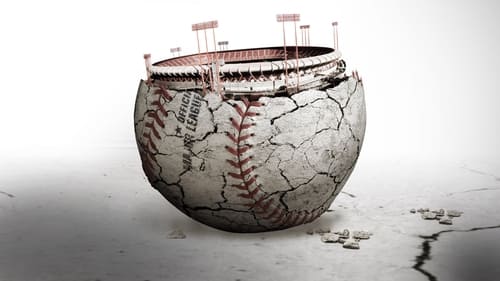
Executive Producer
On Oct. 17, 1989, at 5:04 p.m. PT, soon after Al Michaels and Tim McCarver started the ABC telecast for Game 3 of the World Series between the San Francisco Giants and the Oakland Athletics, the ground began to shake beneath Candlestick Park. Even before that moment, this had promised to be a memorable matchup: the first in 33 years between teams from the same metropolitan area, a battle featuring larger-than-life characters and equally colorful fan bases. But after the 6.9 Loma Prieta earthquake rolled through, bringing death and destruction, the Bay Area pulled together, and baseball took a backseat.

Executive Producer
The film will tell the story of Mackey Sasser, a talented catcher for the New York Mets, who could hit, call pitches, block the plate and fire missiles down to second base but he couldn't throw the ball back to the pitcher. Through interviews with Mackey, his sports psychologists and commentators, as well as footage of his playing days and his treatment (which involved using a baseball to find the boyhood traumas underlying his career-ending anxiety), this program will look at the mental side of sports and probe what takes a player in and out of the "zone".

Executive Producer
Chile hosts a decisive World Cup qualifier at Santiago’s National Stadium just weeks after the stadium had been transformed into a concentration camp and killing field for opponents of Augusto Pinochet (who had just gained power in a military coup). Though FIFA investigates the matter, the game goes on, with the Chilean team winning in a walkover after their opponents from the Soviet Union boycott in protest over the stadium's use
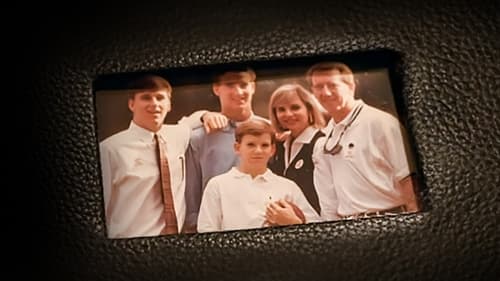
Executive Producer
Explores the personal and professional life of former NFL and Ole Miss quarterback Archie Manning and how the sudden loss of his father impacted his life and the way he and his wife Olivia raised their three sons.

Executive Producer
In the fall of 1962, a dramatic series of events made Civil Rights history and changed a way of life. On the eve of James Meredith becoming the first African-American to attend class at the University of Mississippi, the campus erupted into a night of rioting between those opposed to the integration of the school and those trying to enforce it. Before the rioting ended, the National Guard and Federal troops were called in to put an end to the violence and enforce Meredith's rights as an American citizen.
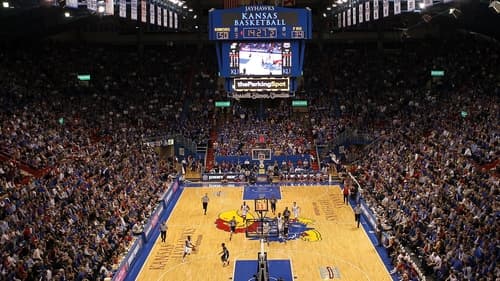
Executive Producer
On December 10, 2010, Sotheby's auctioned off what could be considered the most important historical document in sports history -- James Naismith's original rules of basketball. "There's No Place Like Home" is the story of one man's fanatical quest to win this seminal American artifact at auction and bring the rules "home" to Lawrence, Kansas, where Naismith coached and taught for over 40 years.

Executive Producer
An inside look at Arkansas basketball and the unique playing style taught by coach Nolan Richardson.

Executive Producer
Natural. Rock star. Outsider. In the 80s, race car driver Tim Richmond lived his life the way he raced cars – wide open. Born into a wealthy family, Richmond was the antithesis of the Southern, blue-collar, dirt-track racers who dominated NASCAR. He also was a flamboyant showman who basked in the attention of the media and fans – especially female admirers. Nevertheless, it was Richmond’s on-track performances that ended up drawing comparisons to racing legends. And in 1986, when he won seven NASCAR races and finished third in the Winston Cup series points race, some believed he was on the verge of stardom. But soon his freewheeling lifestyle caught up to him. He unexpectedly withdrew from the NASCAR racing circuit, reportedly suffering from double pneumonia. In reality he had AIDS. Richmond returned to the track in 1987, but he was gone from the sport by the next year as his health deteriorated. He spent his final days as a recluse, dying on August 13, 1989, at the age of 34.

Executive Producer
When the night of October 16, 2004 came to a merciful end, the Curse of the Bambino was alive and well. The vaunted Yankee lineup, led by A-Rod, Jeter, and Sheffield, had just extended their ALCS lead to three games to none, pounding out 19 runs against their hated rivals. The next night, in Game 4, the Yankees took a 4-3 lead into the bottom of the ninth inning, then turned the game over to Mariano Rivera, the best relief pitcher in postseason history, to secure yet another trip to the World Series. But after a walk and a hard-fought stolen base, the cold October winds of change began to blow. Over four consecutive days and nights, this unlikely group of Red Sox miraculously won four straight games to overcome the inevitability of their destiny. Major League Baseball Productions will produce a film in "real-time" that takes an in-depth look at the 96 hours that brought salvation to Red Sox Nation and made baseball history in the process.

Executive Producer
Love them or hate them, the Yankees remain the most glorified team in American sports history. Led by the Babe, the Iron Horse, the Yankee Clipper and the Mick, they dominated baseball for more than four decades before the legendary franchise sagged under the ownership of CBS. Then in 1973, a 42-year-old shipbuilder named George Steinbrenner, a man now as iconic to his team as the pinstripes on its uniforms, headed a group that purchased the Yankees, and turned that investment into a billion-dollar business. Since 1923, the ‘House that Ruth Built’ has been the epicenter of the baseball world, inspiring generations of fans to maintain loyalties through good times and bad. But with a deteriorating facility and an eye towards 21st century style revenues, Steinbrenner was inspired to build an impressive new stadium. While the Yankees kept their Bronx address at 161st and River Avenue, the new ballpark marked the end of one grand era with the hope of launching another.

Executive Producer
The first time Chris Evert and Martina Navratilova stepped onto a tennis court together, the world scarcely noticed. Only a few hundred spectators saw the pert 18-year-old beat the scrappy 16-year-old Czech in 1973. “I remember that she was fat,” Evert recalled. “She was very emotional on the court, whining if she didn't feel she was playing well. But I remember thinking, if she loses weight, we’re all in trouble.” Said Navratilova, “My goal was for her to remember my name.” Eighty matches later – amid the extraordinary growth of women’s tennis – Evert not only remembered, but became a tried and true friend and confidante, remarkable considering the two appeared to be polar opposites in upbringing, life styles and personal relationships. Through a series of personal conversations, this documentary will tell the story of one of the greatest one-on-one sports rivalries and capture these two extraordinary athletes’ views on tennis and an ever-changing world.

Executive Producer
On the evening of Sept. 7, 1996, Mike Tyson, the WBC heavyweight champion, attempted to take Bruce Seldon’s WBA title at the MGM Grand in Las Vegas. At this point in his career, Tyson’s fights had become somewhat of a cultural phenomenon, where the ever present hype of the professional boxing scene would come face to face with the worlds of big business, Hollywood, and hip hop. Sitting ringside was controversial rapper Tupac Shakur. Shakur and Tyson were friends, a feeling of kinship linked them as each rose to stardom from poverty only to be thrown in prison. Following Tyson’s victory, Shakur and “Iron Mike” were to celebrate at an after party, but the rap star never arrived. Shakur was brutally gunned down later that night, and the scene in Las Vegas quickly turned from would-be celebratory revelry to ill fated and inopportune tragedy.

Executive Producer
In 1982, Cody Webster and a small group of friends from Kirkland, Washington, sat anxiously in a dugout waiting to take the field for the championship game of the Little League World Series. Their focus was just about what you’d expect from any 12-year-old: hit the ball, throw strikes, cross your fingers and then maybe – maybe – you’ll win. Adults in the stands and watching from home saw a much broader field of play. The memories of American hostages and a crippling oil crisis were still fresh; the economic malaise of the late 1970s still lingered; and the new President was recovering from an assassination attempt even while confronting new threats from the Soviet Union. Meanwhile, back on that tiny baseball field in Williamsport, Pennsylvania, no American team had won a true international Little League World Series Championship in more than a decade. When the Kirkland players rushed from their dugout that day, they stepped onto a much bigger field than the one they saw.

Executive Producer
In 1985, at the tender age of 13, Mat Hoffman entered into the BMX circuit as an amateur, and by 16 he had risen to the professional level. Throughout his storied career, Hoffman has ignored conventional limitations, instead, focusing his efforts on the purity of the sport and the pursuit of “what’s next.” His motivations stem purely from his own ambitions, and even without endorsements, cameras, fame and fans, Hoffman would still be working to push the boundaries of gravity. Academy Award nominee Spike Jonze and extreme sport fanatic Johnny Knoxville, along with director Jeff Tremaine, will showcase the inner workings and exploits of the man who gave birth to “Big Air.”

Executive Producer
In 1982, Raiders owner Al Davis beat the NFL in court and moved his team from Oakland to Los Angeles. With a squad as colorful as its owner, the Raiders captivated a large number of black and Hispanic fans in L.A. at a time when gang warfare, immigration and the real estate boom were rapidly changing the city. The L.A. Raiders morphed into a worldwide brand as the team’s colors, swagger and anti-establishment ethos became linked with the hip-hop scene that was permeating South Central Los Angeles. Rapper-turned-filmmaker Ice Cube was not only witness to this evolution, he was also a part of it. As a member of the notorious rap group N.W.A, Ice Cube helped make the silver and black culturally significant to a new generation and demographic. Still a die-hard Raiders fan, Cube will explore the unlikely marriage between the NFL’s rebel franchise and America’s glamour city and show how pro football’s outlaw team became the toast of La La Land.

Executive Producer
Rugby Union has long been viewed in South Africa as a game for the white population, and the country’s success in the sport has been a true source of Afrikaner pride. When the 50-year-old policies and entrenched injustices of apartheid were finally overthrown in 1994, Nelson Mandela’s new government began rebuilding a nation badly in need of racial unity. So the world was watching when South Africa played host to the 1995 Rugby World Cup. Though they had only one non-white player, the South African Springboks gained supporters of all colors as they made an improbable run into the final match where they beat the heavily favored New Zealand team. When Mandela himself marched to the center of the pitch cloaked in a Springbok jersey and shook hands with the captain of the South African team, two nations became one. Oscar winner Morgan Freeman and director Cliff Bestall will tell the emotional story of that cornerstone moment and what it meant to South Africa’s healing process.

Executive Producer
Ricky Williams does not conform to America’s definition of the modern athlete. In 2004, with rumors of another positive marijuana test looming, the Miami Dolphins running back traded adulation and a mansion in South Florida for anonymity and a $7 a night tent in Australia. His decision created a media frenzy that dismantled his reputation and branded him as America's Pothead. But while most in the media thought Williams was ruining his life by leaving football, Ricky thought he was saving it. Through personal footage recorded with Williams during his time away from football and beyond, filmmaker Sean Pamphilon takes a fresh look at a player who had become a media punching bag and has since redeemed himself as a father and a teammate.

Executive Producer
Fantasy Sports is estimated to be a $4 billion industry that boasts over 30 million participants and a league for almost every sport imaginable. But for all this success, the story of the game’s inception is little known. The modern fantasy leagues can be traced back to a group of writers and academics who met at La Rotisserie Francaise in New York City to form a baseball league of their own: The Rotisserie League. The game quickly grew in popularity, and with the growing use and attractiveness of the Internet, the “founding fathers” never foresaw how their creation would take off and ultimately leave them behind. Innovative filmmakers Adam Kurland and Lucas Jansen will chronicle the early development and ultimate explosion of Rotisserie Baseball, and shine a light on its mostly unnoticed innovators.

Executive Producer
Director Steve James returns to his home town of Hampton, Virginia to tell the story of how the trial of a young basketball star left a city divided.
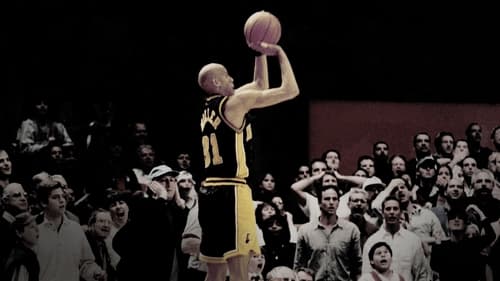
Executive Producer
Reggie Miller single-handedly crushed the hearts of Knick fans multiple times. But it was the 1995 Eastern Conference Semifinals that solidified Miller as Public Enemy #1 in New York City. With moments to go in Game 1, and facing a seemingly insurmountable deficit of 105-99, Miller scored eight points in 8.9 seconds to give his Indiana Pacers an astonishing victory. This career-defining performance, combined with his give-and-take with Knicks fan Spike Lee, made Miller and the Knicks a highlight of the 1995 NBA playoffs. Peabody Award-winning director Dan Klores will explore how Miller proudly built his legend as "The Garden's Greatest Villain".

Executive Producer
Throughout the 1980s, Miami, Florida, was at the center of a racial and cultural shift taking place throughout the country. Overwhelmed by riots and tensions, Miami was a city in flux, and the University of Miami football team served as a microcosm for this evolution. The image of the predominantly white university was forever changed when coach Howard Schnellenberger scoured some of the toughest ghettos in Florida to recruit mostly black players for his team. With a newly branded swagger, inspired and fueled by the quickly growing local Miami hip hop culture, these Hurricanes took on larger-than-life personalities and won four national titles between 1983 and 1991. Filmmaker Billy Corben, a Miami native and University of Miami alum, will tell the story of how these “Bad Boys” of football changed the attitude of the game they played, and how this serene campus was transformed into “The U.”

Producer
“The NFL Today” on CBS was one of the preeminent sports programs on television in the early 1980s. It was a perfect combination of reporting, analysis, predictions, humor and talent. But there was no personality on the show more popular than Jimmy “The Greek” Snyder. Born in Steubenville, Ohio, to Greek immigrants, Jimmy overcame childhood tragedy, moved to Las Vegas, and eventually became the biggest name in the world of sports handicapping. When CBS added him as an “analyst” on “The NFL Today,” “The Greek” not only further increased his stature as a sort of national folk hero, but he also gained an air of respectability never before associated with gamblers. Peabody Award-winning filmmaker Fritz Mitchell, who broke in as an intern on “The NFL Today,” will examine Snyder’s impact on the growth of sports gambling, while also taking a fresh look at The Greek’s tragic downfall.

Executive Producer
The late Len Bias still leaves more questions than answers. When Bias dropped dead two days after the 1986 NBA Draft, he forever altered our perception of casual drug use and became the tipping point of America's drug crisis in the mid-80's. Future generations continue to face the harsh punishment of drug policies that were influenced by the public outcry after his heartbreaking death. Instead of becoming an NBA star, he became a one-man deterrent, the athlete who reminded everyone just how dangerous drug use can be. Amazingly, questions still linger about his death nearly a quarter-century later. How good could he have been in the pro ranks? Has he become underrated or overrated as the years pass? How could a University of Maryland superstar and Boston Celtics lottery pick be derailed by a cocaine binge? Was Bias a one-time user as we were led to believe, or was there a pattern of recreational use that led to his fatal last night? Did he fall in with the wrong crowd.
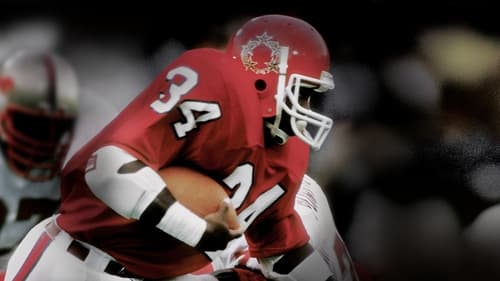
Executive Producer
In 1983 the upstart United States Football League (USFL) had the audacity to challenge the almighty NFL. The new league did the unthinkable by playing in the spring and plucked three straight Heisman Trophy winners away from the NFL. The 12-team USFL played before crowds that averaged 25,000, and started off with respectable TV ratings. But with success came expansion and new owners, including a certain high profile and impatient real estate baron whose vision was at odds with the league’s founders. Soon, the USFL was reduced to waging a desperate anti-trust lawsuit against the NFL, which yielded an ironic verdict that effectively forced the league out of business. Now, almost a quarter of a century later, Academy Award-nominated and Peabody Award-winning director Mike Tollin, himself once a chronicler of the league, will showcase the remarkable influence of those three years on football history and attempt to answer the question, “Who Killed the USFL?”
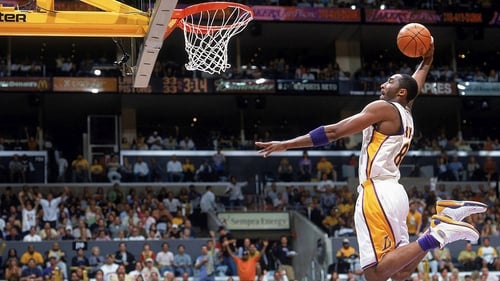
Executive Producer
A documentary following Kobe Bryant during one day of the 2008 NBA playoffs.

Executive Producer
The Zen of Bobby V focuses on former MLB manager Bobby Valentine and his current job managing the Chiba Lotte Marines in Japan.































